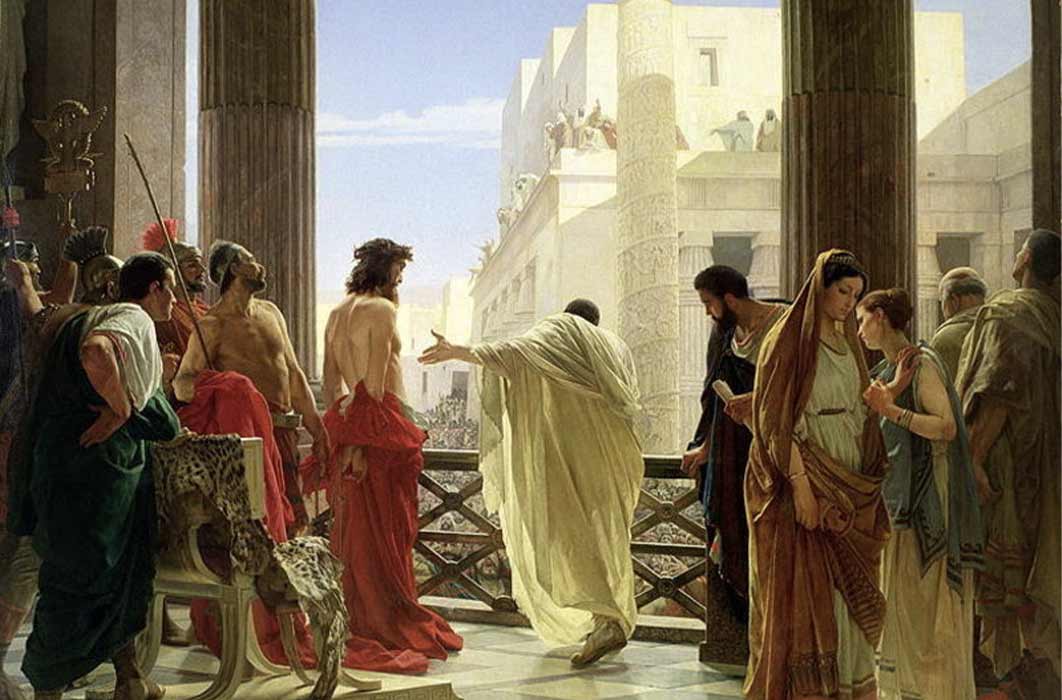
The Royal Lineage Of Jesus, Descendant Of Cleopatra
The simplistic story of the life of Jesus, as it is presented in the New Testament accounts, is well known. He was supposedly a poor carpenter born in a stable, a disadvantaged child who rose to become a great leader and teacher. However, there is more than enough evidence within the Gospels and Talmud to demonstrate that Jesus’ family were actually wealthy, educated and influential characters within Judaean society. But since these texts have obviously been manipulated and amended, one must look beyond this deliberate obfuscation to uncover the truth.
Revisiting Historical Jesus
The first thing to note is that Jesus himself was not a carpenter but a tekton or an ‘architect’. In fact, in the Greek an archo-tekton can refer to a Master Mason, and so Jesus' trade probably refers more to the speculative side of the Masonic Craft than the construction profession. Which is why the ‘Raising of Lazarus’ is exactly the same as a Masonic Third Degree initiation. So, Jesus was a Mason, from a Judaean Lodge.

The romanticized woodcut engraving of Flavius Josephus appearing in William Whiston's translation of his works. (Public Domain)
Reading further, one finds that Jesus was visited by the three of the Persian Magi priesthood; he received a good education in Egypt, at a time when the majority of the population were illiterate; his friends, Zacharias and Nicodemus, were very rich; while another supporter, Joanna, was the wife of Herod’s vizier or prime minister. By carefully reading the accounts of Josephus Flavius and aligning the biblical Jesus with his Jesus of Gamala, one can conclude that Jesus was governor of Tiberias, owned a castle in that region, and controlled a private militia some 600 strong.
More perhaps important than all of this, it is said that Jesus’ birth was deemed by King Herod to be a threat to his royal lineage, forcing him to apparently kill all the male infants in the region in order to eradicate this threat to his monarchy – and this was a real event or a wild rumor that clearly demonstrates that Jesus was a prince of some influence within Judaean society. King Herod would not have been fearful of a poor carpenter, but he would have been fearful of a well-connected prince who was a pretender to the throne of Judaea. In fact, the mocking claim of Jesus to be the ‘King of the Jews’ was no mockery at all, for he was indeed a legitimate pretender to many of the thrones of the Middle East. Undoubtedly, Jesus’ parents’ ultimate goal was to see him seated upon one of those thrones, which is why the Herodian tetrarchs of Judaea feared his presence in that region.

The massacre of innocents by Niccolò Bambini. Basilica Santa Maria Gloriosa dei Frari. (CC BY-SA 4.0)
Jesus An Egyptian or Persian Prince
The problem with this alternative interpretation of the New Testament, is that the various texts that detail the circumstances of Jesus’ birth and education would seem to be incompatible. According to these, one appears to be looking into the historical record for an exiled prince who was of both Egyptian (his education) and Persian (the Magi) descent. In addition, one needs to discover a prince who was influential enough to make his mark on the history of Judaea, but obscure enough to be easily lost to most of real recorded history. The question is, therefore, whether any prince within the historical record would fit all of these widely differing requirements.
- Political Landscape of the Nativity of Jesus
- 17 Years in Tibet: Where Did Jesus Wander?
- Ancient Texts Strongly Suggest Jesus was Literate and Multilingual
Descendants of Cleopatra and Caesar
Strange as it may seem, there was such a royal family. They were indeed influential kings and queens, and yet it is known that they were exiled from their homeland and settled in an area called Bethanya [Bethany], in eastern Syrio-Judaea, in about 4 AD. They brought with them into exile 500 cavalry and 100 relations and retinue, a history which tallies with Josephus’ accounts of the 'biblical family' (of Jesus of Gamala) maintaining their own military forces. In Syrio-Judaea, this exiled royal family raised a new generation and founded a small kingdom that competed strongly with the traditional Judaean authorities in Jerusalem.




